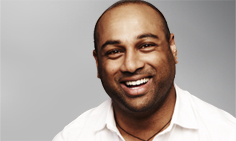SOME health professionals place the idea of working in Aboriginal and Torres Strait Islander health in the “too hard” basket. Compliance issues, language barriers and cultural practices are all seen to hinder effective health care.
But these issues also illustrate why both Indigenous and non-Indigenous health care professionals must consider Indigenous health a worthwhile area to work in. While it can be frustrating at times, there are several attributes a medical or allied health professional working in this field should develop that will benefit their career.
As medical practitioners we are not new to the concept of SODOTO — See one, do one, teach one. “See one” refers to observing and making sense of a technique, “do one” to putting the observations into action, and “teach one” to how the knowledge and experiences we have gained are being codified and taught to others.
One Disease — a not-for-profit organisation with a mission to eliminate diseases from Indigenous communities, one disease at a time — is relatively new to this field but has had the privilege of being guided by those who have worked in Indigenous health for many years.
These include a personal mentor and One Disease advisory board member Professor Frank Bowden (infectious diseases physician, professor of medicine at the Australian National University Medical School and a senior administrator in ACT Health), and Professor Jonathan Carapetis (specialist in paediatrics, infectious diseases and public health, and an expert in Indigenous child health), who are both key opinion leaders in Indigenous health and disease elimination campaigns.
Frank and Jonathan ,as well as other leaders such as Professor Bart Currie (tropical and emerging infectious diseases team leader in the global and tropical health division of the Menzies School of Health Research), offer unique insights into our role in Indigenous health.
Surrounding ourselves with those with more insight and experience is crucial to enabling us to develop strategies and implement effective health care programs.
One Disease has developed an extensive human resources strategy for working in remote Indigenous health.
Although the science of human resources is well developed in business and other disciplines, health and medical industries still rely heavily on academic credit, publications and experience, with little emphasis on the personality, passion and optimism of the individual.
The ability to pick the “right” people is the single most important role of a leader in any field of work. Indigenous health is a difficult field to work in due to the myriad cultural and social aspects that influence people’s health and wellbeing. Therefore, we place a high priority on choosing optimistic and driven individuals who are in it for the long haul.
In Indigenous health, our ultimate customers are Indigenous communities so our people must fit with these communities to deliver optimum health care to them.
Any success of One Disease, which is currently working on eliminating scabies, can thus far be attributed to many things. However, it is the partnership with communities that is of the utmost importance.
Our Healthy Skin Program is only implemented in communities that welcome us and give us permission to work with their people, when the elders and the local clinics see the need for our expertise. We employ local people and upskill them to assist with in-language community education, case finding and skin checks. The ultimate goal is to empower the community with knowledge of the disease and its treatment so that they are able to tackle this on their own.
As medical and allied health staff, we always keep top of mind that delivering health care must be done in a culturally sensitive and appropriate manner, and to do this we ensure that we are capable of letting ourselves be led by the community.
I don’t feel at all like an expert in this space but these are some of the learnings my team and I have taken on board in the past 4 years.
We would like to share this knowledge with the broader medical community in the hope it will help to improve Indigenous health.
Dr Sam Prince is the founding director and chair of One Disease. He is a humanitarian, philanthropist, entrepreneur and a medical doctor.

 more_vert
more_vert